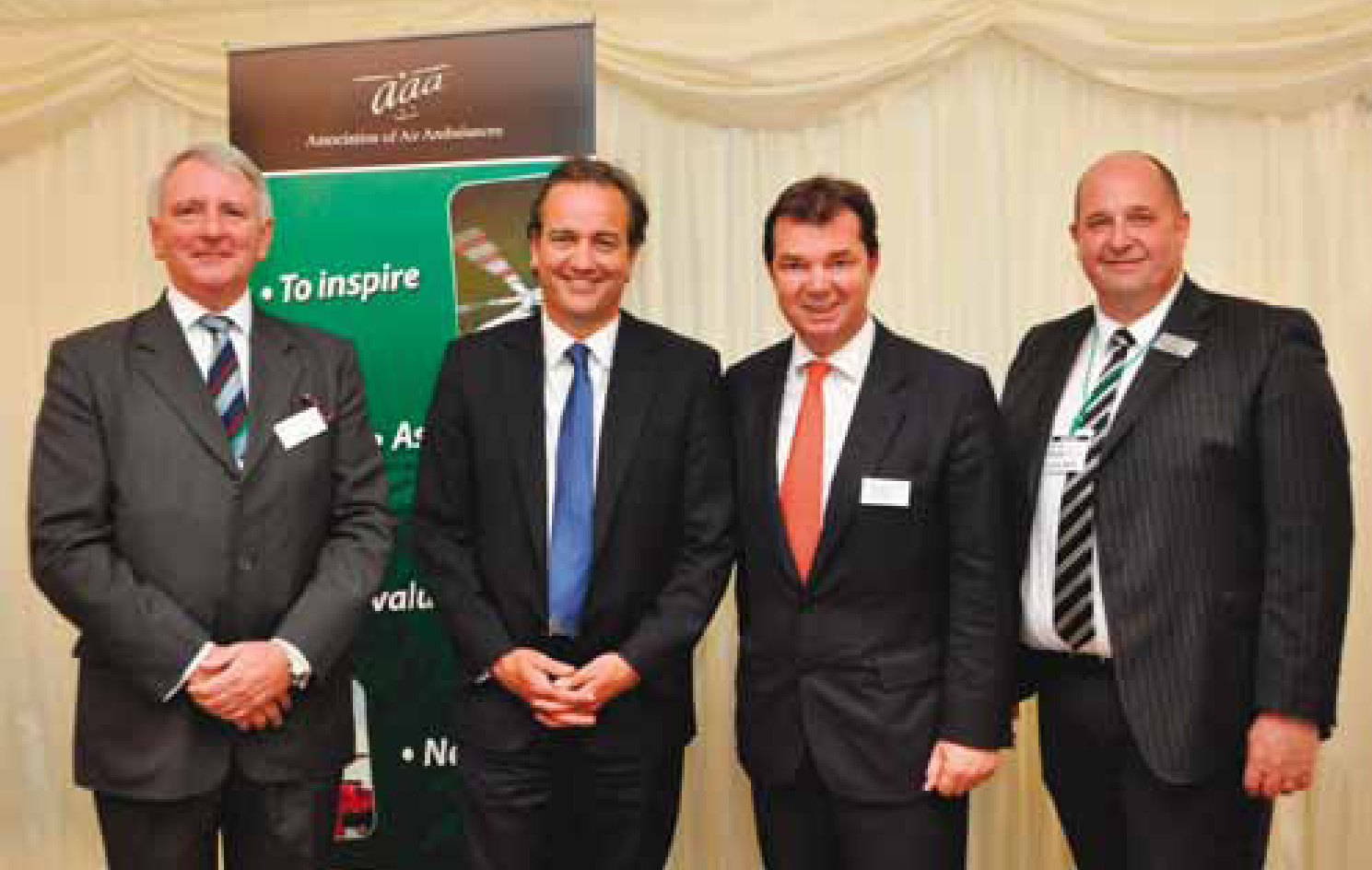
The Minister for Civil Society, Nick Hurd MP, has told members of air ambulance charities that his ‘door is always open’.
Speaking at a reception held by the All Party Parliamentary Group for Air Ambulances (APPGAA) on 9 June on the House of Commons Terrace, Westminster, Mr Hurd MP extended an open invitation to all air ambulance charities:
‘My offer is this, it is a very simple one: my door is always open. Please come and see me. My job is to advocate on behalf of civil society on behalf of the voluntary sector. If you don't feel you're getting heard, if you feel you have got an argument that you really want to make, or you have got a brilliant creative idea, please come and see me.’
Mr Hurd MP praised the work being undertaken by air ambulance charities in the UK, who together raised £96.4 million last year through public donations and on average treat 70 patients a day by the 20 charity-funded services.
He expressed his admiration for air ambulance services as a result of the passion and enthusiasm underlying the organisations, as well as their pride and desire to do more to help people.
In a sector that relies on public generosity, and people's willingness and ability to give time and money, Mr Hurd MP said:
‘There is a lot the Government can do to make it easier to give.’
The event, hosted by the chairman of the APPGAA, Guy Opperman MP, allowed local air ambulance charities and ambulance services from the UK to meet with members of Westminster to discuss their operations and key issues affecting the industry.
The APPGAA, a cross-party group of MPs, was set up in 2010 to support air ambulances. Its aim is to raise the quality of care, effectiveness and efficiency of air ambulance services through closer engagement with policy leaders and policy makers. It recently led a successful campaign in the House of Commons on the relief of VAT on air ambulance aviation fuel, and is currently calling on the Government to endorse a policy of recognition of parity for all patients arrival facilities, following a report published by the APPGAA, which highlighted that 60% of air ambulance facilities in the UK are inadequate.
In his opening speech, Mr Opperman MP explained how he had needed an air ambulance following a horse riding accident during his days as a jockey. He went on to explain how the group acts as a champion for air ambulances, ensuring that they have a strong voice in the House of Commons. By bringing members of Westminster together with the various air ambulance charities, Mr Opperman MP said that air ambulances could:
‘Promote innovation, different ideas, and take what I consider to be the fourth emergency service and then say: how can these incredible voluntary organisations harmonise, work together, come up with innovations, look to learn the lessons—whether it is from 7/7 or individual disasters and accidents that take place—so that there is a cohorted body working together and pushing forward the standards, because we are the best in the world?’
The Association of Air Ambulances (AAA) supported the reception for the second year, bringing patients, charities, ambulance services and legislators together.
Bill Sivewright, chairman of the AAA, welcomed the Minister's comments and thanked everyone in attendance, before issuing a challenge to all those present:
‘We must rise to the challenge of ensuring that the patient remains the focus for all our efforts. Air ambulances need to work with their local NHS Trusts, leveraged through the influence of local MPs when appropriate, to ensure that the patient journey from the point of injury or medical incident through to leaving the hospital is as seamless as possible.’


Speaking to the Journal of Paramedic Practice after the event, Graham Hodgkin, chief executive of London's Air Ambulance, said:
‘As active supporters of the AAA, we're always appreciative of the opportunity to meet with our sector colleagues, as well as some key supporters. The APPGAA reception is an important event where we can collectively highlight the common issues that impact on our operations and funding to our stakeholders in public office that can positively influence outcomes on our behalf. The APPGAA was instrumental in securing the recent VAT rebate on aviation fuel and it was really encouraging to hear the Minister for Civil Society, Nick Hurd MP, say his door is always open to us as charities.’
Mike Page, emergency care practitioner and critical care paramedic for Great Western Air Ambulance, added:
‘This has been an excellent opportunity for the Great Western Air Ambulance Charity (GWACC) and our team of critical care paramedics to meet with and discuss with our local members of parliament some of the important issues affecting the organisation's ability to deliver the patient-centred care that is so gratefully funded by the kind donations of members of the public.
‘We in the GWACC area are extremely lucky to have the support of so many of the local MPs, a number of whom have visited the base and provide a good level of support. It is always good to know that they have an open door policy for us and are willing to support our charity when needed.’
Looking to the future for air ambulances, Clive Dickin, national director of the AAA, said:
‘The work on our key issues continues. We are in dialogue with NHS England on the issue of helipads and look for continued support through the members of the All Party Parliamentary Group in delivering appropriate landing facilities within the National Health Service Trusts. On other key issues, we continue to lobby for all VAT, not just that on aviation fuel, to be recoverable for charities, and again, we are working hard with the All Party Parliamentary Group to ensure that that actually materialises. At a local level, we encourage our air ambulance members to be engaging with their local MPs and pressing home those messages and reassuring the fundraisers, the volunteers and the patients that we are constantly improving services.’
Mr Opperman MP, added:
‘I think they [air ambulance charities] need to lobby their MPs more, without a shadow of a doubt. They need to to try to realise they've got a great deal more critical mass and force then they have actually exercised previously.
The reception was undoubtedly a success, giving the air ambulance community a rare opportunity to engage with legislators and members of Westminster, and make their issues heard.
